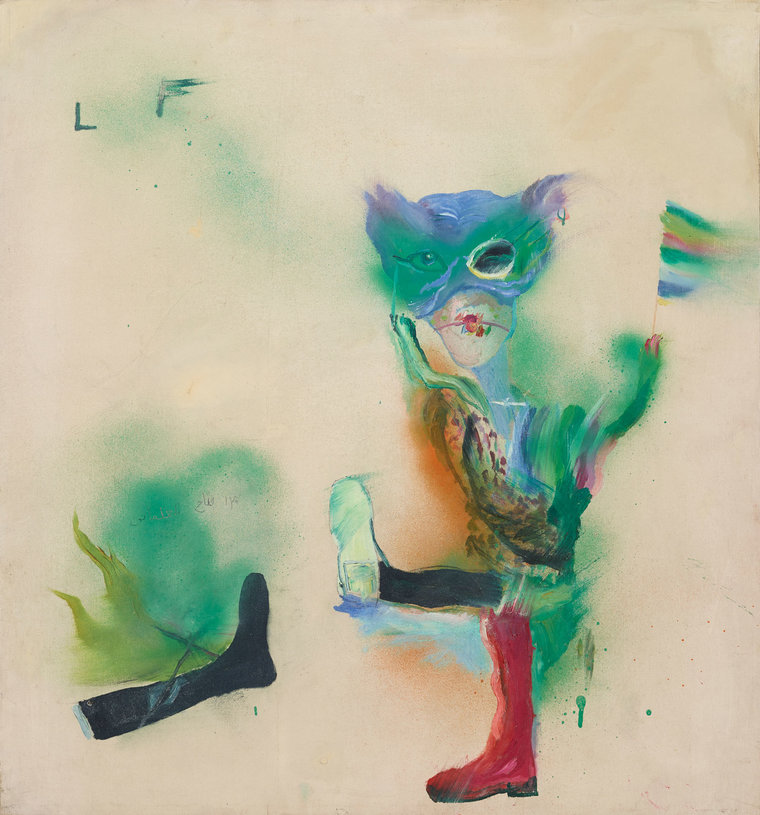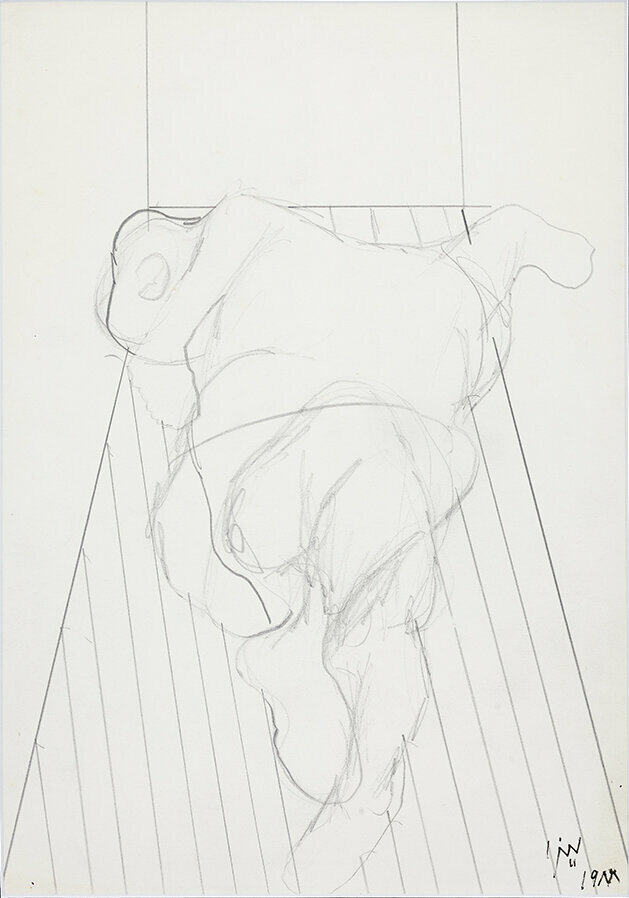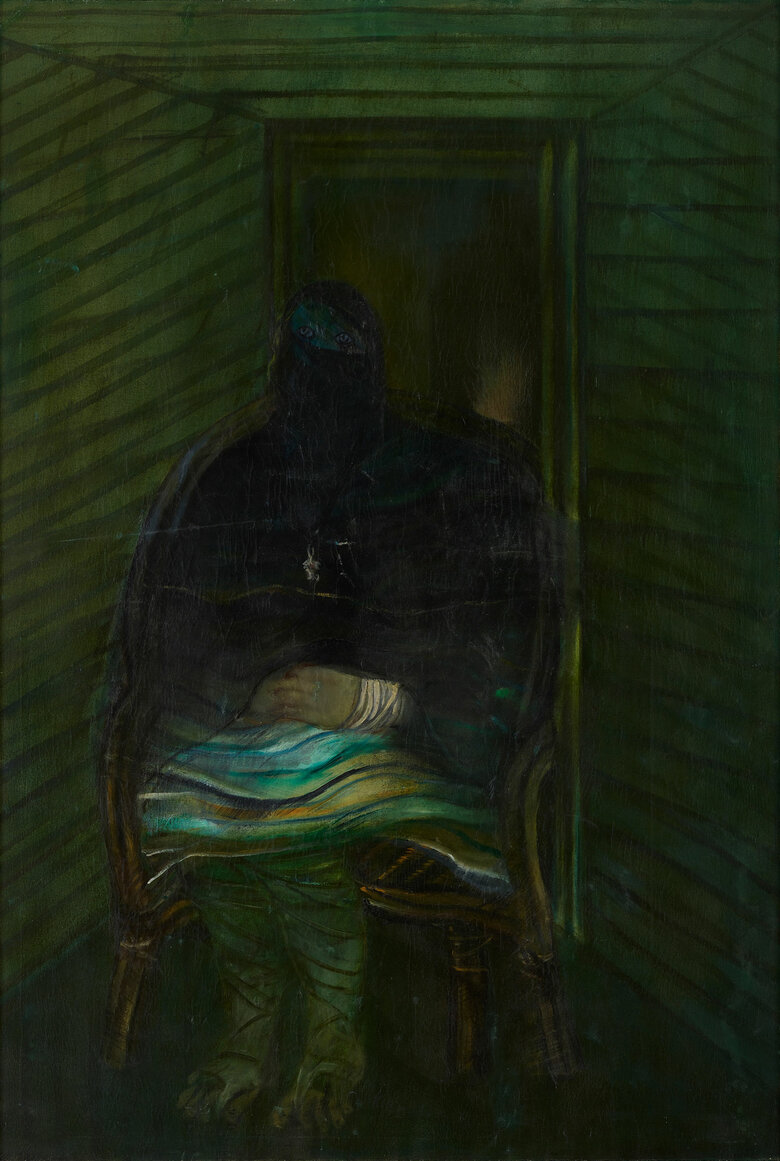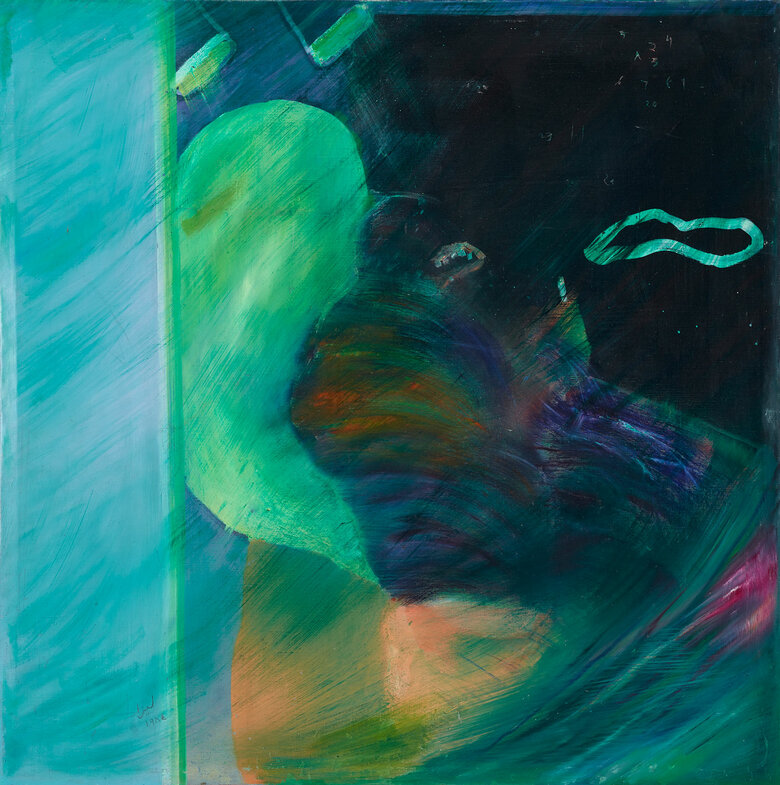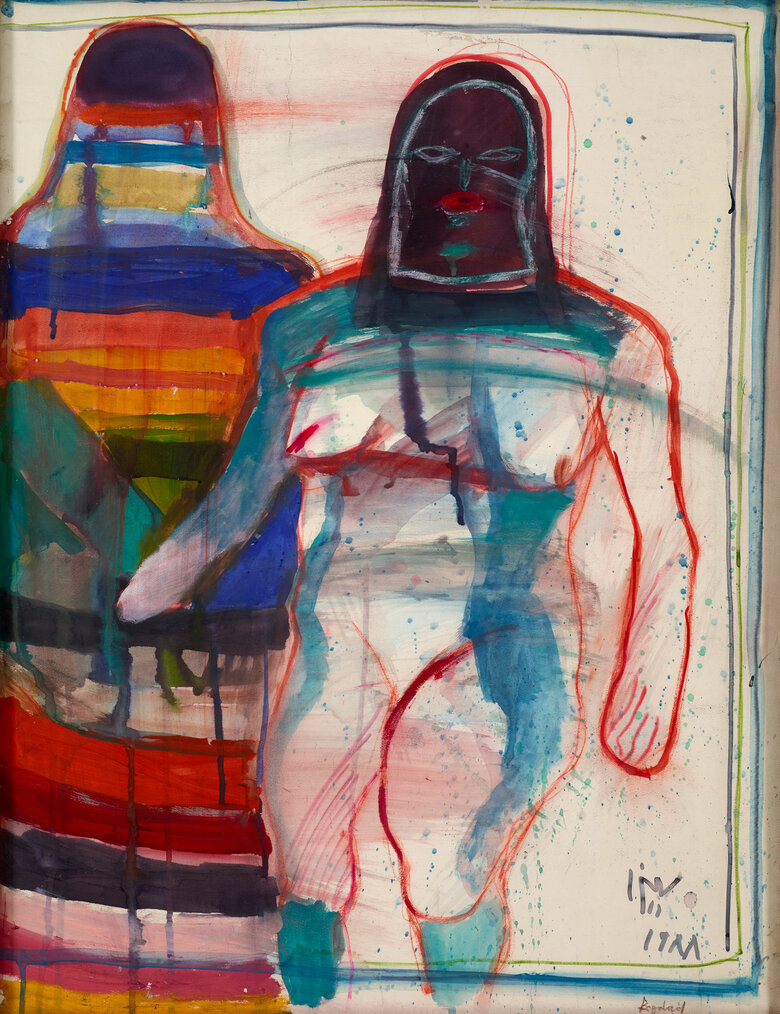Untitled, n.d., by Lisa Fattah, a German-Swedish artist who spent most of her life in Iraq, is a poignant reflection on identity and displacement. Painted in acrylic on canvas, the work presents a fragmented figure dissolving into a pale, undefined background. Its features blur into soft washes of green and blue, creating an eerie sense of dissolution. One arm is raised, defiantly clutching a small flag while the lower half is fractured with one marching leg grounded in a bold red boot, the other seemingly detached and discarded in a nearby fire.
Fattah’s work is deeply intertwined with her personal history. Born in 1941 in Oslo, Norway, to German-Swedish parents, she grew up in a conservative environment shaped by her father, a Christian priest. Known for her independent and rebellious spirit, she left Europe to study art in Italy, where she met the Iraqi sculptor Ismael Fattah. Their marriage in 1963 marked the beginning of a new chapter as she moved with him to Baghdad, embracing Iraq as her home and embedding herself in its artistic community. Though she remained deeply engaged with her husband’s work and the movements he participated in (as a member of Baghdad Group for Modern Art and a founding member of the Iraqi New Vision Group), Lisa carved out her own distinct voice, one that was introspective and deeply personal.
Unlike her husband’s grand sculptural statements on national identity and resilience, Lisa’s paintings were intimate, often depicting fragmented bodies and distorted figures caught between states of being. Untitled exemplifies this approach: its central figure appears to be in the process of unraveling, its contours breaking apart as if eroded by conflict. The sparse, almost barren background intensifies this sense of instability, making the figure feel ephemeral, on the verge of vanishing.
Lisa Fattah’s artistic practice unfolded against the backdrop of Iraq’s shifting political landscape. From the rise of the Ba’athist regime to the devastation of the Iran-Iraq War, she witnessed a country in constant turmoil. While her husband’s monumental works engaged with collective struggle, her own art turned inward, capturing the emotional toll of war on the individual. This tension between belonging and alienation, between visibility and erasure, is evident in Untitled, where the disjointed figure exists in a state that is both defiant and precarious. The amputated leg deepens the sense of fragmentation, a stark testament to war’s relentless toll – not only on bodies but on the very integrity of selfhood. Here, movement and disintegration are inseparable with the figure caught in a perpetual state of becoming and unmaking.
Personal tragedy further shaped Fattah’s later work. In 1989, the death of her father in Germany deepened her sense of displacement, further exacerbated by the ongoing Kuwait-Iraq war. A year later, she was diagnosed with leukemia, a battle that profoundly affected her physically and creatively. Chemotherapy left her weakened, and her illness seeped into her work – figures grew more fragile, bodies became distorted, as if mirroring her own transformation. In this light, Untitled could potentially take on new meaning, becoming a meditation on mortality, the impermanence of the self, and the quiet erosion of existence.
Signed initials " L F" in English front upper right/ signed in Arabic on the front middle right

